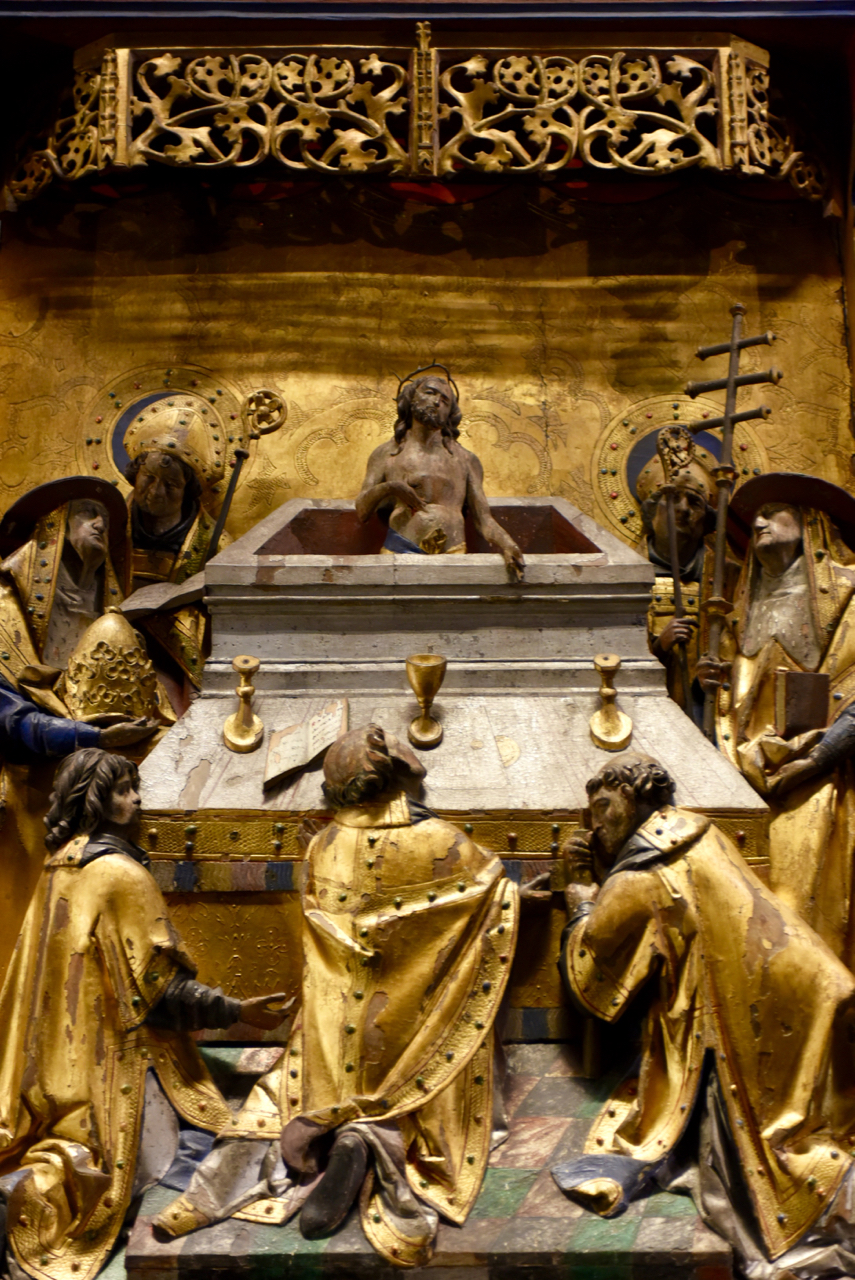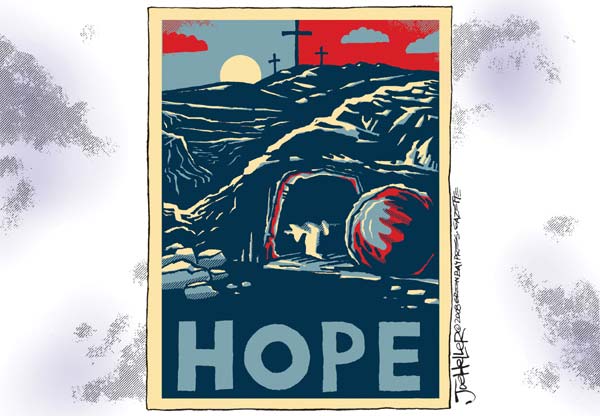This essay was written as part of the outreach program of The Episcopal Church of the Good Shepherd in Lexington to continue to minister to our community in this time of uncertainty and “social distancing” that requires not meeting in person. For essays by my friends and colleagues go to “Calming the Storm.”

We are in a time of grief. Whether we know anyone who has died recently or not, we are grieving. That is because we grieve all sorts of things, not just the death of a loved one. Grief is the response to loss, to a situation changing in a way that we did not want. (Joy, on the other hand, is the response to things changing in a way that we did not expect to be pleasant, good, and happy.) We grieve, of course, when someone dies, but we grieve also when we lose a job or a relationship. It is often not the loss of something that we grieve as much as the loss of the future. We might have had a vision of ourselves in a particular career or relationship and when that possibility is removed, when that path is no longer open to us, we grieve for the loss of what we hoped and expected might happen in our lives.
We grieve as well when our “normal” becomes “abnormal.” There is nothing normal about our current situation. No matter who you are, what you do, or where you live you are affected by the COVID virus. That brings about a change that none of us expected or wanted and so we grieve, whether we realize it or not.
Realizing that we are grieving is a very important step in being emotionally, spiritually, and physically healthy. This allows us to recognize that the fact we are sad, tired, snacking, grumpy, bitter, this is all a natural response to this tragic and difficult situation we find ourselves in. While it is important to recognize the dark land of grief and sadness that we are in, we must continue to travel through it, not remaining too long in that valley. We do so by lifting our eyes up and realizing as well that this is just a place, a part of the journey, but not our final destination or even a stopping point.
As Christians, we know that grief is real and to be experienced, but our grief should no longer be the same. Paul writes to encourage those grieving the death of loved ones.
1Th. 4:13 But we do not want you to be uninformed, brothers and sisters, about those who have died, so that you may not grieve as others do who have no hope. 14 For since we believe that Jesus died and rose again, even so, through Jesus, God will bring with him those who have died.
The experience of this life has not changed. People get sick and die, we lose jobs and relationships, and we hurt spiritually, emotionally, and physically. But as Christians we know that we live on the other side of Easter Sunday, we know that Christ is risen! (He is risen indeed!) We do continue to grieve, but not as others do who have no hope. The fact that Jesus died for us and then rose from the dead, changes our perspective of life, of our experiences, of everything. No, it does not take away the burdens and challenges of this world. It does not take away our grief, it transforms it.
This is expressed in a subtle but powerful way in another of Paul’s writings, in his first letter to the Corinthians. Paul is again encouraging those who are saddened by the loss of friends and loved ones and discouraged that Jesus has not yet returned. Death itself, he declares, has been changed so that it no longer has the final word, it is no longer the end. Like Jesus, we too shall die yet we also will be raised from the dead! “Christ has been raised from the dead, the first fruits of those who have died” (1 Cor. 15:20).
What is subtle and powerful about Paul’s statement here is unfortunately hidden in the New Revised Standard Version translation. There are actually two different Greek words used by Paul that are represented by the English words “dead” and “died” in the NRSV. In the first case, the Greek word is, in fact, the word for “dead,” nekron. “Christ has been raised from the dead.” Paul is emphasizing the fact that Jesus was really dead. Dead as in all life gone out of him, the death that comes to all living things. Jesus was dead and yet he was raised to life again. On the other hand, “those who have died” (as the NRSV has it) are actually described as “those who have fallen asleep” (kekoimēmenōn).
Paul is not being polite, it is not some kind euphemism for death, rather he is making the stark contrast between the pre-Easter death of Jesus, from which he was raised, and the death which we now experience, not as the final ending of life but as a transition. So, Paul’s declaration is better rendered as, “Christ has been raised from the dead, the first fruits of those who have fallen asleep.” Jesus, the risen Christ, has transformed our death into a mortal sleep that will be followed by life eternal.
This world continues to be a place of suffering and hardship. This is no revelation to you; we all know it and experience. It is also a place of great grace, where God is present and active, often using us as his agents of grace. Even as God works in us and through us, we will grieve and that is right and healthy. Our grief, however, is forever transformed by the resurrection of Jesus that affirms his promises, that assures us that death is no longer final. The tears shall be replaced with joy, the mourning will turn into dancing, and we all shall be raised from our sleep to eternal life in Christ. This is the hope that changes everything and allows us to bear all things in the knowledge and love of the risen Christ.
Grant, O Lord, to all who grieve the spirit of faith and courage, that they may have strength to meet the days to come with steadfastness and patience; not sorrowing as those without hope, but in thankful remembrance of your great goodness, and in the joyful expectation of eternal life with those they love. And this we ask in the Name of Jesus Christ our Savior. Amen.




